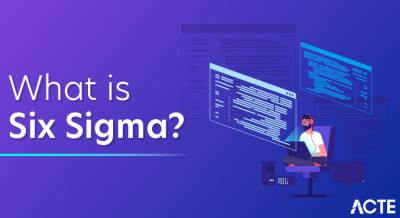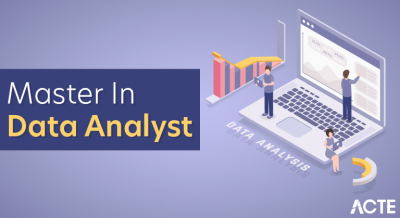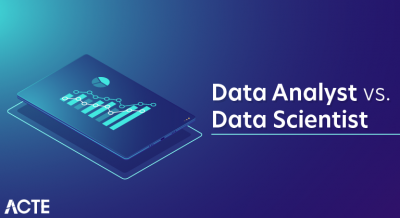
STEPS TO BUILD A DATA ANALYST CAREER
Step 1 – Data Analyst Education and Training Requirements
Expect that you will require at least a Bachelor’s Degree to become a data analyst, preferably in Information Technology, Computer Science, Maths, or Statistics. However, some people become data analysts even with just a strong foundational data analytics training. This usually holds true for professionals who already have relevant industry experience and a strong affinity towards math and statistics. Many data analysts can also go on to pursue their master’s degree or Ph.D. as they move ahead in their career to senior executive and analytics management job roles.
One can also go over the non-traditional paths like online certified data analytics courses or boot camps to pursue a data analyst role. For instance, eLearning providers like Springboard offer a mentor guided online data analytics course to become a data analyst in 6 months.
Step 2 – Acquire Core Data Analyst Skills
If you are on the road to clicking on the “Apply” button for data analytics jobs, you’ll need to have these essential analytics skills under your belt as a new data analyst-
- Data analysts speak with numbers so it is obvious that math is an essential building block to become a data analyst. Knowledge of linear algebra and multivariable calculus is a must to translate business problems into mathematical expressions.
- Probability and Statistics – These are the foundational skills for anyone who wants to become a data analyst. To derive accurate conclusions, you need to know the likelihood of the occurrence of an event which is nothing but a probability. Further to make inferences and interpret data you need to know when and how to apply various statistical tests and techniques.
- Programming is definitely one of the most integral parts of data analysis. So, learn one or more programming languages such as Python, Java, SQL, R for data management and exploration.
This is not an exhaustive list of the data analyst skills you need to acquire but definitely the must-have skills on a data analyst resume. When applying for data analytics jobs, these data analyst skills prove you have a strong foundation to be successful in the position.
Step 3 – Gain Analytics Experience
Most employers of data analysts require that candidates have at least 3-5 years of experience in the IT industry or one or more years of relevant analytics experience. The best way to gain this experience is to pursue an analytics internship even if the stipend is less because the experience you gain for data analytics jobs is more valuable than the money. Internships not just get you experience but also provide a bird view of what one does as a data analyst. Some of the companies in India to apply for an analytics internship are Amazon, FedEx, NextDataScience, Decathlon, Vidooly, Payzello, Prizmatics, Wipro, and Accenture.
The next best thing to gain experience is to work on various data analysis projects which demonstrate your active interest in becoming a data analyst and build experience. Working on multiple data analysis projects lets you deepen your understanding of various data analysis tools and techniques. Publishing these projects online builds a portfolio of your practical work experience. These projects will help you gain invaluable real-world experience while attracting the attention of potential employers. The best way to get started with data analysis projects is to explore diverse datasets available on data.gov or visit Kaggle that is home for over 25K datasets.
Data Analyst Skills:
1: Data Cleaning and Preparation
Research shows that data cleaning and preparation accounts for around 80% of the work of data professionals. This makes it perhaps the key skill for anyone serious about getting a job in data.
Commonly, a data analyst will need to retrieve data from one or more sources and prepare the data so it is ready for numerical and categorical analysis. Data cleaning also involves handling missing and inconsistent data that may affect your analysis.
Data cleaning isn’t always considered “sexy”, but preparing data can actually be a lot of fun when treated as a problem-solving exercise. In any case, it’s where most data projects start, so it’s a key skill you’ll need if you’re going to become a data analyst.

2: Data Analysis and Exploration
It might sound funny to list “data analysis” in a list of required data analyst skills. But analysis itself is a specific skill that needs to be mastered.
At its core, data analysis means taking a business question or need and turning it into a data question. Then, you’ll need to transform and analyze data to extract an answer to that question.
Another form of data analysis is exploration. Data exploration is looking to find interesting trends or relationships in the data that could bring value to a business.
Exploration might be guided by an original business question, but it also might be relatively unguided. By looking to find patterns and blips in the data, you may stumble across an opportunity for the business to decrease costs or increase growth!
3: Statistical Knowledge
A strong foundation in probability and statistics is an important data analyst skill. This knowledge will help guide your analysis and exploration and help you understand the data that you’re working with.
Additionally, understanding stats will help you make sure your analysis is valid and will help you avoid common fallacies and logical errors.
The exact level of statistical knowledge required will vary depending on the demands of your particular role and the data you’re working with. For example, if your company relies on probabilistic analysis, you’ll need a much more rigorous understanding of those areas than you would otherwise.
4: Creating Data Visualizations
Data visualizations make trends and patterns in data easier to understand. Humans are visual creatures, and most people aren’t going to be able to get meaningful insight by looking at a giant spreadsheet of numbers. As a data analyst, you’ll need to be able to create plots and charts to help communicate your data and findings visually.
This means creating clean, visually compelling charts that will help others understand the data. It also means avoiding things that are either difficult to interpret (like pie charts) or can be misleading (like manipulating axis values).
Visualizations can also be an important part of data exploration. Sometimes there are things that you can see visually in the data that can hide when you just look at the numbers.
5: Creating Dashboards and/or Reports
As a data analyst, you’ll need to empower others within your organization to use data to make key decisions. By building dashboards and reports, you’ll be giving others access to important data by removing technical barriers.
This might take the form of a simple chart and table with date filters, all the way up to a large dashboard containing hundreds of data points that are interactive and update automatically.
Job requirements can vary a lot from position to position, but almost every data analyst job is going to involve producing reports on your findings and/or building dashboards to showcase them.
6: Writing and Communication Skills
The ability to communicate in multiple formats is a key data analyst skill. Writing, speaking, explaining, listening— strong communication skills across all of these areas will help you succeed.
Communication is key in collaborating with your colleagues. For example, in a kickoff meeting with business stakeholders, careful listening skills are needed to understand the analyses they require. Similarly, during your project, you may need to be able to explain a complex topic to non-technical teammates.
Written communication is also incredibly important — you’ll almost certainly need to write up your analysis and recommendations.
Being clear, direct, and easily understood is a skill that will advance your career in data. It may be a “soft” skill, but don’t underestimate it — the best analytical skills in the world won’t be worth much unless you can explain what they mean and convince your colleagues to act on your findings.
7: Domain Knowledge
Domain knowledge is understanding things that are specific to the particular industry and company that you work for. For example, if you’re working for a company with an online store, you might need to understand the nuances of e-commerce. In contrast, if you’re analyzing data about mechanical systems, you might need to understand those systems and how they work.
Domain knowledge changes from industry to industry, so you may find yourself needing to research and learn quickly. No matter where you work, if you don’t understand what you’re analyzing it’s going to be difficult to do it effectively, making domain knowledge a key data analyst skill.
This is certainly something that you can learn on the job, but if you know a specific industry or area you’d like to work in, building as much understanding as you can up front will make you a more attractive job applicant and a more effective employee once you do get the job.
8: Problem-Solving
As a data analyst, you’re going to run up against problems, bugs, and roadblocks every day. Being able to problem-solve your way out of them is a key skill.
You might need to research a quirk of some software or coding language that you’re using. Your company might have resource constraints that force you to be innovative in how you approach a problem. The data you’re using might be incomplete. Or you might need to perform some “good enough” analysis to meet a looming deadline.
Whatever the circumstances, strong problem-solving skills are going to be an incredible asset for any data analyst.
If you intend to become a successful data analyst, you must start by ensuring a good knowledge in technology, business intelligence, data mining, data auditing, mathematics, statistics and another bunch of analytics skills which include:
- Programming Languages: You need to be familiar with some computer software and scripting languages like Matlab and Python to find significant insights, statistical languages like R, SAS, and other computer skills include JavaScript, XML, and so on.
- Data Mining and Auditing: A data analyst must have data mining and auditing skills. Data mining is the process of sorting through large sets of data to classify patterns and establish relationships through data analysis. Data auditing is the process of conducting a data audit to assess how a company’s data can be used for a given purpose.
- Testing Skills: A data analyst must have testing skills as tests are carried out based on different hypotheses that impact the key performance indicators in one way or another.
- Statistical Skills: A data analyst must have a grounding in statistics as it helps in understanding algorithms.
- Communication Skills: A data analyst is expected to work with different people. So, one should be able to communicate technical findings to non-technical co-workers to solve business problems.
Data Analyst Job Description:
As a data analyst, you will need to:
- Identify, analyze, and interpret trends or patterns in complex data sets that help in boosting business.
- Import data from various external data sources to bring meaningful insights to the business.
- Create data visualizations to effectively convey findings to management that helps in the decision-making process.
- Filter and clean data by examining computer reports and performance indicators.
- Work with management, IT teams, and data scientists to determine organizational goals.
- Collect customer requirements, determine technical issues, and design reports to meet data analysis needs.
- Identify new sources of data and methods to improve data collection, analysis, and reporting.
- Collect, understand, and document detailed business requirements using appropriate tools and techniques.
- Locate and define new process improvement opportunities.
Data Analyst Qualification: A degree in fields such as computers, statistics, economics, etc. is often required. Irrespective of your degree, to succeed as a data analyst you must be able, one must master the relevant skills mentioned above.
Data Analyst Salary: The salary of a data analyst usually is dependent on the organization and job responsibilities. But it varies due to the niche(s) one specializes in. But, suffice it say, the market for data scientists is good right now.





